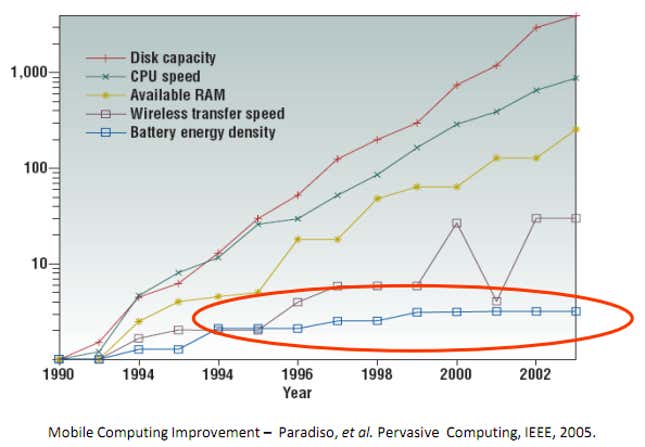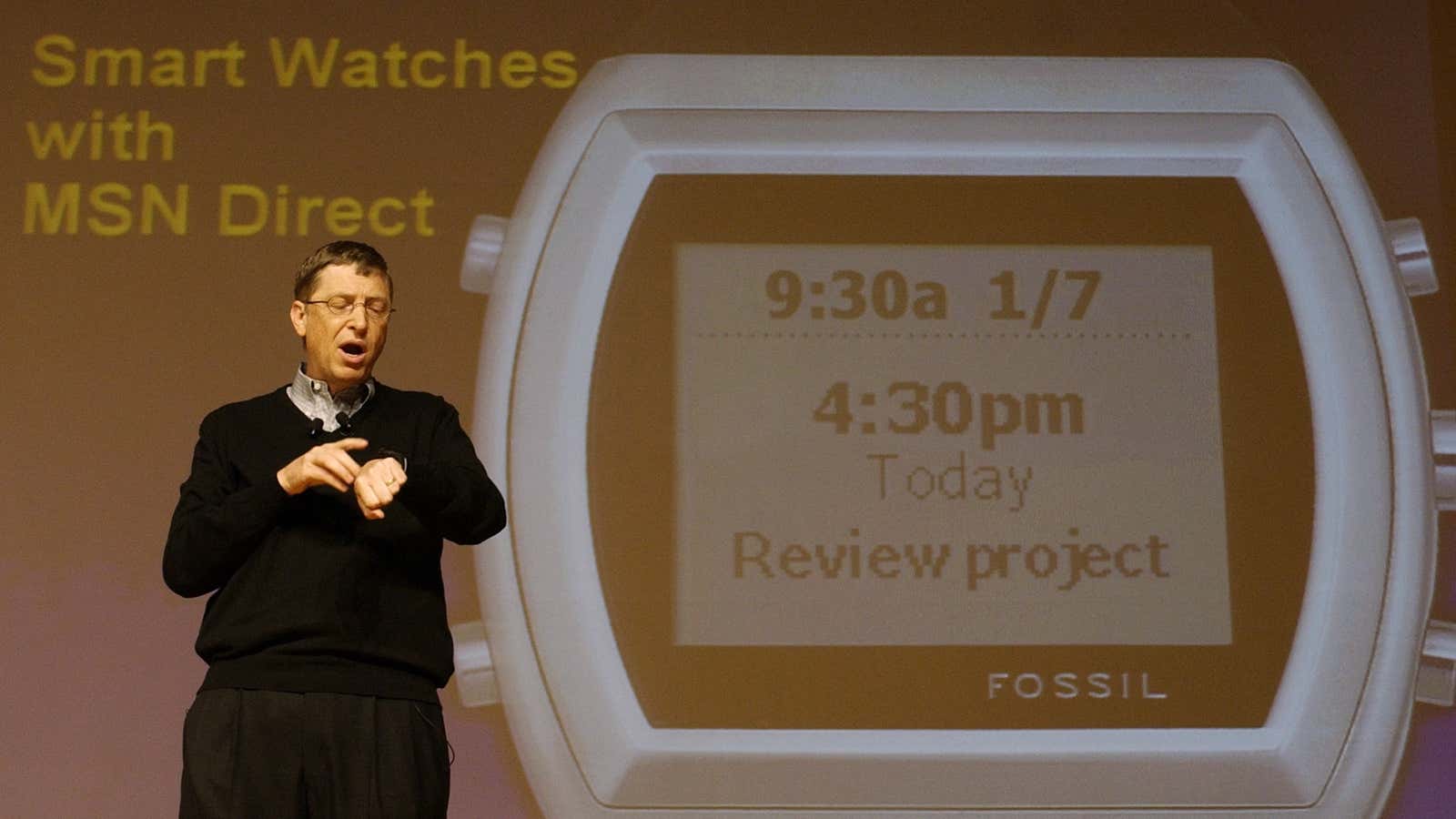This morning both an anonymous source at Samsung and vice president of mobile Lee Young Hee said that the company is working on a smart watch, one that “will perform many of the tasks of a smartphone.” In the wake of an earlier rumor about Apple’s work on a smart watch—supposedly involving a team of 100 engineers—this feels a bit like a new kind of tech arms race. At the very least, it’s the race to be the first to hint at products that may be many months or even years in the future, in order to prop up the endless hype cycle required to capture the interest of consumers who have come to expect that revelations like Google Glass should arrive with some regularity.
“We’ve been preparing the watch product for so long,” Hee told Bloomberg.
Given the rapacious consumer interest for smart watches demonstrated by the success of limited, first-generation smart watches like the Pebble, at this point no rumor of any electronics company working on a smart watch surprises. If an 18-year-old dropout in Montreal can get a smartphone watch to the prototype stage, why wouldn’t a multinational like Samsung have one of its own?
Samsung is no stranger to smart watches, but until now they’ve been a novelty—so what makes this point in history different? As Simon Tian, founder of the smart watch startup Neptune, explained, all the components required to squeeze a full-blown smartphone into something about the size of the screen on an old-school BlackBerry are now small enough and power-sipping enough to be worn on the wrist. Because the real barrier to making a capable smart watch work, it turns out, is battery life.

See that line circled in red? That’s the (lack of) progress in the energy density of batteries. Compare that to the Moore’s law-ish progression of computer processing (CPU) speed and the availability of storage, and the problem becomes apparent. This is the primary reason why the companies that are most successful at selling mobile microprocessors are firms like ARM, and not Intel—ARM’s specialty is getting the most performance per watt, rather than raw power.
Which doesn’t mean that any forthcoming watches from Samsung and Apple will just be small phones—Apple, especially, probably sees this as an opportunity to invent a new category of device, rather than the time to simply shrink the phone and put a strap on it. And with new technologies for ultra-fast mobile chips on the horizon, it’s possible our wrist-phones will be no less surprising than the first iPhone was.




